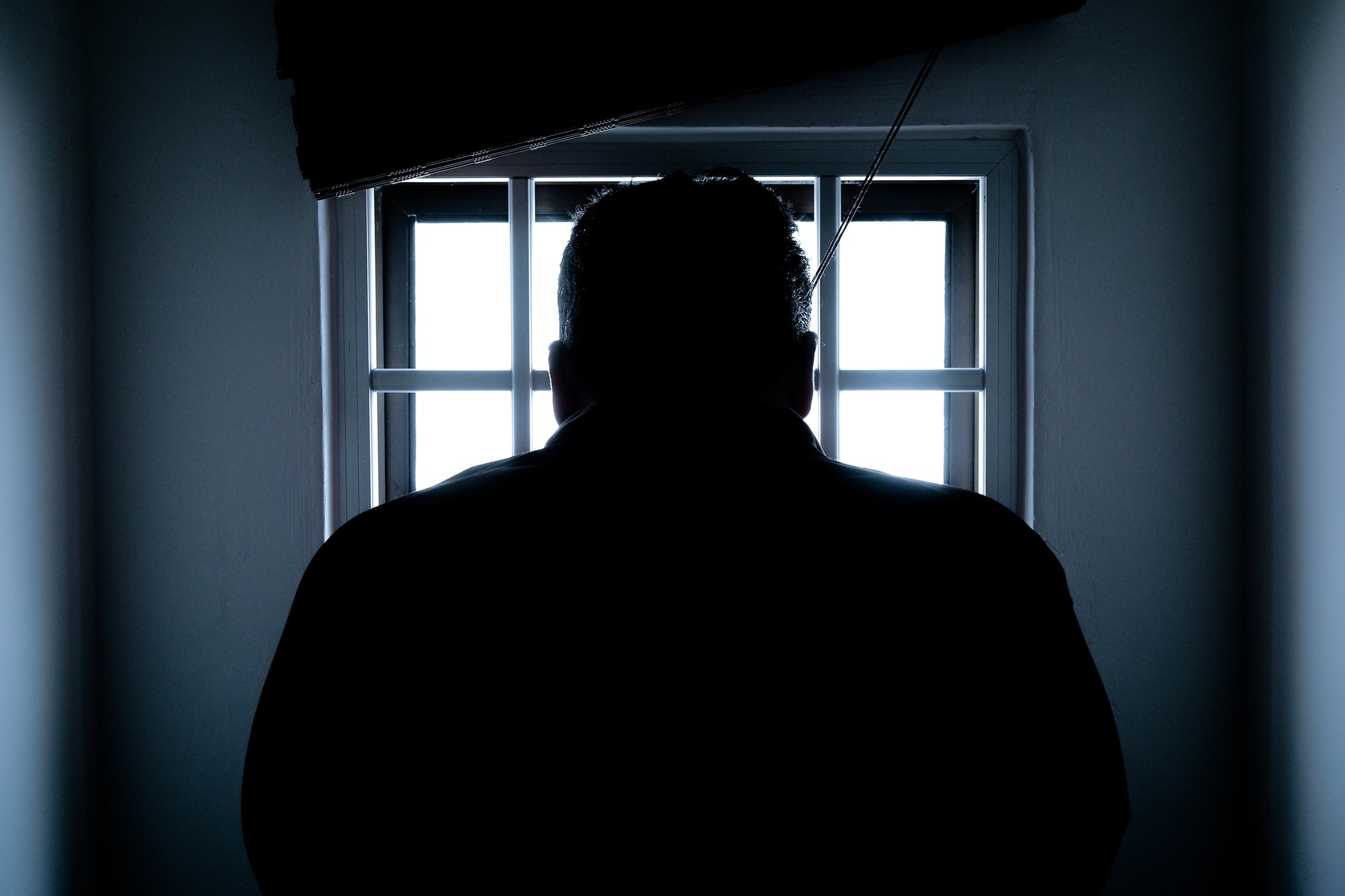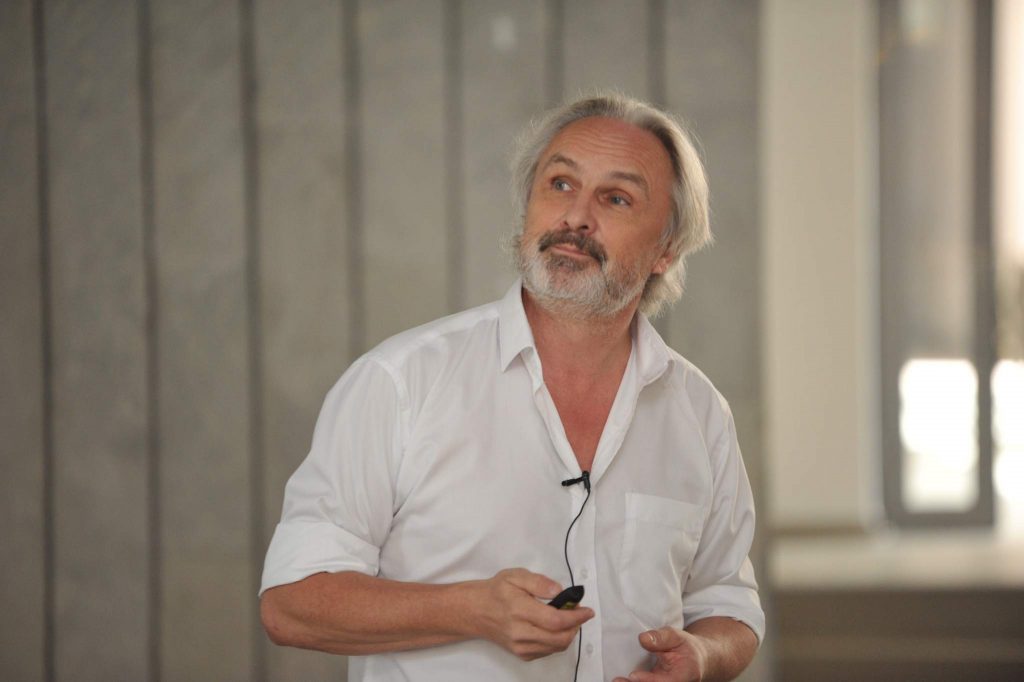Human Rights Activists Are Being Locked Up in Psychiatric Hospitals

Have you shared a picture online mocking the authorities? Your bank account may be frozen and the court may order to place you in a psychiatric hospital. According to a report published by the foundation Human Rights in Mental Health (FGIP), such methods of silencing political opponents, religious believers, human rights activists and dissidents are still employed by the Russian authorities to this day, continuing the practices that began during the Soviet era. One of the authors of the report, Chief Executive of FGIP, Professor Robert van Voren of Vytautas Magnus University (VMU), says that psychiatry is a convenient cover for repressions against the critics of the authorities.
“If we don’t act now, we might soon be back to a situation similar to the one 40-50 years ago, when one third or more of political prisoners were languishing in psychiatric hospitals,” Professor van Voren warns.
The report details more than 20 cases of psychiatric abuse against human rights activists, representatives of religious movements, critics of the authorities and others. These people were involuntarily hospitalized, unduly diagnosed with various mental disorders and prescribed high doses of psychotropic drugs; moreover, psychiatric patients were forcibly sterilized. Such means of dealing with political opponents or critics of the authorities have been used in Russia for many decades, but recent events show that not only is the situation not improving, it is getting worse.
“Russian local authorities felt free to use the “psychiatric route” again, to rid themselves of bothersome or too popular political opponents. What started out as a sequence of individual cases led to a more systematic form, different than in the Soviet times but equally disturbing. This is the fourth report we publish, and regrettably every report published paints a worse picture than the previous one,” says Chief Executive of FGIP.
The best weapon against the abuse of psychiatry is publicity
The report notes that involuntary hospitalization is a convenient instrument of repression: the judicial procedure is greatly simplified (often no formal charges are required) and a person can be locked in a psychiatric facility for an indefinite period of time under strict isolation conditions where contacts with family members are restricted and medications with destructive effects on mind are coercively administered.
“A commission made up of three doctors writes whatever they like in a conclusion. Then, a person is pumped up with sedatives to the point where he is drooling, and in such a state he is brought to court. The judge looks at him and makes a decision to hospitalize him,” a lawyer quoted in the report describes the typical procedure used in Russia.
According to van Voren, FGIP was originally established in 1980 to organize the international campaign against political abuse of psychiatry. The foundation managed to get people known in the West to be released, largely due to publicity. The authors of the report stress that publicity remains the best weapon. When specific cases become public, people start protesting, and then the court’s decision is either reversed by a higher court or the person is released from the psychiatric hospital.
We must identify and shame those who contribute to such abuse and hold them accountable. We must also focus on training in professional ethics and human rights. Education is a very important tool, as is a clear indication that there is a difference between those who contribute to such abuse and those who try to be true professionals under such hostile conditions,” says professor who is also the Director of the Andrei Sakharov Research Center for Democratic Development at Vytautas Magnus University.
Involuntary treatment at a psychiatric hospital for sharing a picture online
Among the victims listed in the report is Andrei Shasherin from Altai region who in 2018 was accused of inciting hatred and insulting the feelings of believers for posting pictures on the social network Vkontakte. Among them was the depiction of a Russian Orthodox Church priest with the caption “Have you sinned? Recite ‘Crimea is Ours’ three times.” After Shasherin refused to plead guilty, the prosecutor ordered a forensic psychiatric evaluation for him, and the district court ruled that he must be placed under in-patient psychiatric care.
Another case of psychiatric abuse is linked to a human rights activist Yunus Masharipov who spoke out against the annexation of Crimea and the repression of Crimean Tatars. In September 2017, he was arrested on charges of manufacturing and storing explosive devices. Russia’s Federal Security Service (FSB) has posted a video of his confession, but Masharipov himself claimed that he made his confession under torture which involved burning of the palms, electro-shock, kicking, etc. He was later sentenced to 4 years of imprisonment; however, the appellate court overturned the sentence, declared Masharipov unfit to stand trial and sent him for involuntary treatment at an in-patient psychiatric hospital in the Volgograd Region.
Police were given permission to shoot a shaman
The FGIP report also mentions Alexander Gabyshev, a Yakut shaman whose story has received widespread attention both in Russia and worldwide. In the summer of 2018, he set off on foot on a pilgrimage from Siberia to Moscow for the purpose of performing a ritual in Red Square to “exorcise” Vladimir Putin.
“Democracy must be without fear. People are afraid to talk, they are afraid they will be fired and lose their income. Government power in our country is simply boundless and demonic,” said Gabyshev. The shaman said he fights for democracy using exclusively peaceful methods.
After several attempts to reach the Kremlin, arrests and a psychiatric examination, Gabyshev was charged with resisting police, declared mentally ill and forcibly hospitalized in the Yakut Republican Psychoneurological Clinic. One of the officials that took part in the arrest reported that even the question of murdering the shaman was raised as the commanders had given permission to shoot him; however, they decided not to do that because Gabyshev was “gifted and sociable.”
Well-known cultural figures, such as the Nobel Prize laureate Svetlana Alexievich, playwright Alexander Gelman, poet Lev Rubinshtein, actress Elena Koreneva and others signed a petition demanding the release of Gabyshev. They noted that regardless of what people might think of his decision to make a pilgrimage to Moscow, the right to freedom of movement for citizens of Russia had not yet been abolished. “We are asking for the help of anyone who could help release Gabyshev and draw attention to the resumption of the practice of punitive psychiatry,” the authors of the petition state.
Eventually, in February of this year, the court ruled in favor of the petition by the doctors of the psychiatric clinic to hospitalize Gabyshev involuntarily. In justification, the clinic’s doctors indicated that “Gabyshev once again started making loud statements in the media.”
After Gabyshev was prescribed large doses of psychotropic drugs, he began to complain of insomnia and frequent fainting. During one of the visits of his female relative, he began to shiver so violently that the orderlies were forced to carry him back to the ward. During the court hearing in July, he suddenly felt unwell; he became dizzy and began to shake heavily. An ambulance was called. Doctors diagnosed that Gabyshev had a sharp drop in blood pressure. At a later hearing, it was decided that Gabyshev was unfit to stand trial and that he must be sent for involuntary treatment in a psychiatric intensive care unit. In Russia, they are called STINs, which is an acronym for psychiatric prisons that were used to incarcerate dissidents during the Soviet era.
Former KGB agents in psychiatric leadership positions
According to Professor Robert van Voren, the destructive practices of Soviet psychiatry allowed the profession to become a tool of repression and ostracize tens of millions of USSR citizens from society. The fight against such practices continues to this day. In some former Soviet republics, reforms have only just begun or are stalled, even though three decades have passed since the collapse of the Soviet Union. In Russia, those who collaborated with the KGB in Soviet times or were even outright KGB agents returned to psychiatric leadership positions, while more reform-minded psychiatric circles in, for instance, Saint Petersburg or Siberia, were sidelined.
“It is the direct result of Putin’s rule and the all-encompassing criminalization in the country which defines both his policies and the policies of his henchmen. The only other country where a similar abuse takes place is China, which is not surprising since it is a totalitarian state ruled by the communist regime. For some reason, such regimes have a habit of calling their opponents mentally ill,” says Professor Robert van Voren.
Professor claims that psychiatry is a field of medicine that is very convenient for repressions because our understanding of what mental illness is changes over time and this can be easily exploited to silence people who are “different.”
“It was not until the early 1980s that homosexuality was eliminated from the International Classification of Mental Illnesses; however, there is now a strong movement in Russia against the elimination of “gender-related illnesses” from this classification. Therefore, psychiatrists need to be vigilant and protect their profession and ethics, and they must say “no” when they are violated. Many bad things happened in the German Democratic Republic, but dissidents were not sent to psychiatric hospitals. Why? Because doctors refused to take part in it. They recalled the Nazi Euthanasia Program and said, “Never again.” So it is possible. It just takes courage,” says Chief Executive of Human Rights in Mental Health (FGIP).













